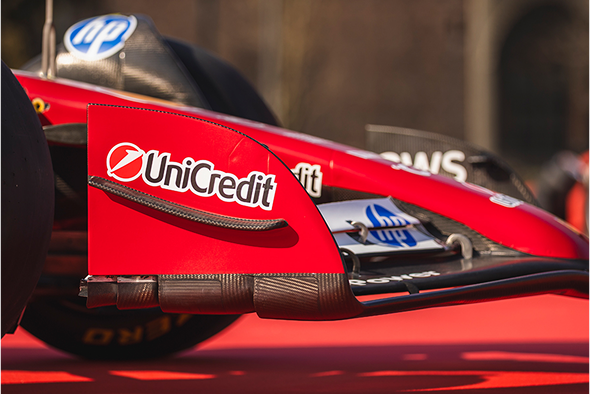
Two major European cross-border asset management relationships are losing momentum, with Italian financial groups reassessing their reliance on French partners.
Unicredit is preparing to exit its long-standing distribution deal with Amundi, while merger talks between Generali Investments and Natixis Investment Managers, still at the proposal stage, have stalled. Both developments reflect a wider shift among Italian firms to regain strategic control over investment manufacturing and distribution, analysts said, even as consolidation remains a strategic priority for the sector.
The most visible fracture is between Amundi, Europe’s largest asset manager, and UniCredit, its key Italian distribution partner. Amundi acquired Pioneer Investments from Unicredit in 2017 for 3.5 billion euros, cementing a distribution pact that gave Amundi exclusive access to the Italian bank’s client base. The contract, due to expire in 2027, requires a high percentage of Unicredit client assets to remain in Amundi funds, but that number has been sliding for some time.
“It’s about reclaiming control over fee generation, but also about tensions with Crédit Agricole.”
Luigi Tramontana, Kepler Cheuvreux
 Chief executive Andrea Orcel has been clear about his ambition to boost in-house fee income. During the bank’s third-quarter results presentation in October, he reiterated that Unicredit aims to “own more of the value chain” in investment products. Under his leadership, the bank has rebuilt its own asset-management capabilities, redirected flows away from Amundi despite contractual penalties, and now looks ready to exit the partnership ahead of schedule.
Chief executive Andrea Orcel has been clear about his ambition to boost in-house fee income. During the bank’s third-quarter results presentation in October, he reiterated that Unicredit aims to “own more of the value chain” in investment products. Under his leadership, the bank has rebuilt its own asset-management capabilities, redirected flows away from Amundi despite contractual penalties, and now looks ready to exit the partnership ahead of schedule.
The motives are both financial and political. “It’s about reclaiming control over fee generation, but also about tensions with Crédit Agricole,” said Luigi Tramontana, equity analyst at Kepler Cheuvreux.
Those tensions have deepened since Crédit Agricole, Amundi’s parent, blocked Unicredit ’s attempt to buy Banco BPM earlier this year. Unicredit t’s recent switch in securities-services partnerships from Crédit Agricole to BNP Paribas is seen as further evidence of the rift.
Another analyst said Unicredit ’s drive for autonomy is also about flexibility and the freedom to offer a broader mix of investment products to clients. “It’s about reclaiming control of the value chain while widening the shelf of products for clients,” he told Investment Officer.
Strategically significant
Amundi, for its part, acknowledged last week that renewal terms are “not yet determined.” Italy remains its largest foreign market, with around 88 billion euros in assets tied to Unicredit . According to Johann Scholtz, senior equity analyst at Morningstar, the relationship accounts for up to 10 percent of Amundi’s net profit, making the fallout strategically significant even if gradual.
Meanwhile, merger talks between Generali and Natixis Investment Managers seem to have stalled too, Reuters reported. People familiar with the matter told the agency that disagreements over valuation, governance and political sensitivities are weighing on the deal.
Diverse investment cultures
Mara Dobrescu, senior principal for fixed-income strategy ratings at Morningstar, believes integration hurdles are a key obstacle. “Natixis has historically maintained a very autonomous model for its affiliates, such as Loomis Sayles,” she told Citywire Italia. “That independence supports diverse investment cultures but hasn’t shielded the group from problems, as seen with H2O, from which Natixis is still divesting.”
Generali’s own acquisitions, such as Conning and MGG, would further complicate any merger, she added. “It’s difficult to see how such a diverse set of entities could operate as one cohesive system.”
The talks, launched in 2023, aimed to create a multi-boutique platform headquartered in Amsterdam, combining funds under joint oversight to form what could have become Europe’s second-largest asset manager by assets.
Generali has reportedly asked for more time to negotiate its proposed asset management tie-up with Natixis and is seeking to remove the breakup fee included in the original memorandum of understanding, Il Sole 24 Ore reported. The clause, worth about 50 million euros, would apply if the deal collapsed.
People familiar with the matter told the Italian business newspaper that members of Generali’s top management have traveled to Paris “on at least a couple of occasions” in recent weeks. Dropping the penalty could make it easier for both sides to walk away if they choose to end talks, they said.
According to Dobrescu a prolonged state of uncertainty could directly affect the people responsible for performance: the portfolio managers. “Long periods of indecision can hurt morale, distract from the core business, and, in the worst cases, trigger a talent exodus,” she warned. Natixis did not respond to requests for comment.
BNP as would-be successor
With Amundi’s hold on Unicredit slipping, BNP Paribas has signaled it would be open to stepping in. During its third-quarter earnings call last week, group chief executive Jean-Laurent Bonnafé told analysts that BNP Paribas would “of course” consider an asset management partnership with Unicredit if the Amundi deal is not extended. BNP’s recent 5.1 billion euro acquisition of AXA Investment Managers has given it the scale and product breadth to offer a credible replacement.
Moreover, Unicredit has already tapped BNP Paribas for custody and settlement services across Italy, Germany and Luxembourg, replacing former partners tied to Amundi shareholders. That infrastructure foothold could pave the way for deeper collaboration.
Still, any new fund distribution agreement is likely to be less exclusive, more flexible and more aligned with Unicredit’s push to blend in-house and third-party products on its own terms.